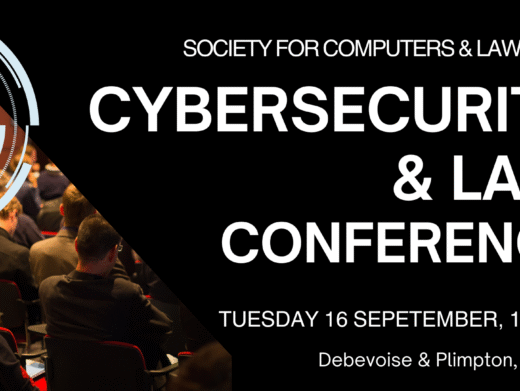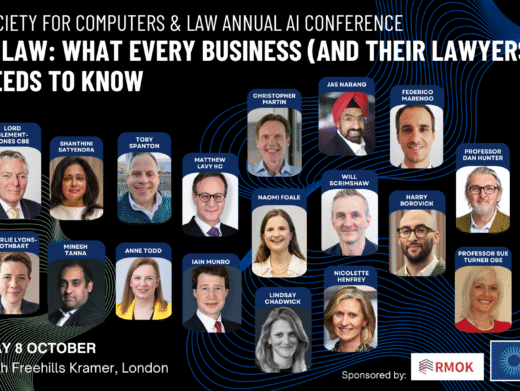Generations of pupils have dreamt of swapping places with their teachers for at least a day and marking them. Web 2.0 has turned this dream into reality. The increasing popularity of rating web sites in the online world has developed from hotel checks and restaurant critiques to reviewing professionals such as solicitors, doctors or tax advisers. Teachers and university lecturers have not been spared by this phenomenon.
The German Federal Court of Justice, which is the country’s supreme court in civil law matters, has been faced with the question of the legality of a teacher rating web site.[1] The online portal spickmich.de[2] (English: ‘crib from me’) had been sued by a teacher. The Court held such ratings to be legal within specific limits. The judgment is interesting from a comparative perspective since there is as yet no decision in the UK in this area.
Background
The teacher who sued the online portal was rated with rather poor marks. She received an average mark of 4.3. That is close to a fail in the German school marking system which runs from 1 (the highest rating) to 6 (the lowest rating). Since the launch of the web site in February 2007, around 1.1 million users have registered and 448,000 teachers have been put on the site with their names and teaching subjects.
Spickmich.de is only accessible upon registration. Users have to register by giving their e-mail address and a username. Registered users can also use the web site for social networking. They have to register for a particular school. One of the web site’s categories is ‘My school’ where users can mark their school according to aspects such as the quality of the school building or the school equipment. Significantly, they can also mark teachers who are named on the site with their teaching subjects. The criteria according to which marks are given are, for instance, ‘cool and funny’, ‘popular’, ‘motivated’, ‘human’, ‘good teaching’ and ‘fair marks’. Once a teacher has received ten ratings, the average mark is calculated and displayed. Ratings which just consist of firsts or fails are automatically excluded to prevent abuse. Pupils can also post quotations from their teachers. Users can print out reports about the teachers with all their marks. It is important that users can only mark teachers and view ratings for the school they are registered for. The users remain anonymous. As is obvious from the requirements for registration, access to the site is less exclusive and restrictive than it would appear, since the validity of the registration details is not checked.
The teacher-claimant was initially granted a prohibitory injunction at a lower court, but subsequently lost the case.[3] She filed for deletion of her personal data as well as for injunctive relief against the internet portal operator to stop it from publishing her personal data. Leave to appeal was granted due to the fundamental importance of the case.
In her grounds for appeal, the claimant argued that her privacy was infringed when she was rated according to the categories of ‘cool and funny’, ‘human’ or ‘popular’. Moreover, she claimed that the category of ‘quotations’ infringed her right to her own spoken word. The claimant’s solicitor had argued that the Federal Data Protection Act (BDSG) must be applied. Teachers and users were not on equal terms as those who rate the teachers just have to provide their username.
Judgment
The Court dismissed the appeal. It was held that the teacher neither had a claim to deletion of her personal data nor a right to an injunction against the rating web site.[4] The ruling was primarily based on an application of provisions of the German Federal Data Protection Act. The scope of the Act is broad and encompasses not only public bodies but also private companies as soon as they collect, store and transmit personal data. Personal data is not only classical data such as names and dates of birth but also expressions of opinion and ratings which are related to a concrete person, as these can be used for assessing a person. Data protection laws allow such dealing with personal data without the consent of the person affected only if there is no conflicting legitimate interest (§ 29 BDSG). In this case the storage would be unlawful.
The Court defined the question of a conflicting ‘legitimate interest’ here by balancing the interest of the persons seeking protection of their personal data with the interest of the user of the web site. It is here that the German basic (human) rights of freedom of expression and freedom of communication and the right to privacy or informational self-determination, as enshrined in the Constitution, come into play. Although basic rights are, generally speaking, only subjective rights against the state, they do have an indirect effect between individuals in private law matters as they provide an objective system of values. Whenever these rights are affected, they have to be taken into account by judges, albeit not directly. Statutory provisions have to be interpreted in light of the basic rights. This is even more the case here, as the Data Protection Act does not only apply to public bodies. Upon balancing these conflicting rights, the judges gave priority to the right to freedom of expression and held that the ratings were protected by this fundamental right. Consequently, there was no overriding ‘legitimate interest’ of the teacher to deletion of her personal data. The judges held that a teacher’s right to informational self-determination deserved less protection as it was only affected in the teacher’s professional capacity and not in the private sphere.
Both the Federal Constitutional Court and the Federal Court of Justice traditionally differentiate between the right to informational self-determination depending on the sphere affected (private sphere, social sphere).[5] The importance given to the right depends on the level of privacy of the sphere affected. The Court has established in its case law that individuals have a lower level of protection in their social sphere than in their private sphere. As regards the teacher in the present case, the Court held that a person develops his personality as part of a social community and has to accept limitations of his right to informational self-determination in this respect.[6] There is therefore no absolute protection of his data. The Court also emphasised that the data is not freely available. The Court indicated however that where comments are abusive or offensive that would go beyond the limit of the principle – but that was not the case here where users could only give marks. The Court’s reasoning was similar in its dismissal of the application for an injunction.
Notably, the rating web site was not subject to the so-called media privilege. [7] This privilege exempts journalistic-editorial work from the statutory requirements of the Data Protection Act. For that privilege to apply, it must be possible for the data to be used to influence the opinion of the general public. The Court held that spickmich contains too little journalistic content as the web site mainly consists of the ratings and a collection of quotations.
Comments
Some have already claimed that this judgment would pave the way for rating portals to appear more generally. This is, however, far from being the case. In fact, this was just the first judgment of the German Federal Court of Justice about this issue. The judges’ careful balance of the conflicting interests of freedom of expression and right to informational self-determination having regard to the particular facts illustrates that it is far from clear that other rating web sites would be judged in a similar way. Moreover, the defeated teacher has already lodged a constitutional complaint to the Federal Constitutional Court. This court will ultimately have to consider the constitutionality of the decision which means that it has to reconsider the application of the basic rights affected.
Some preliminary observations can be made. The decision might be a triumph for the web site owners, but it remains to be seen if other rating portals will benefit from the decision. The presiding judge Gerda Müller emphasised that this was only the first decision regarding one particular rating web site.[8] It does not set a general precedent; the conflicting basic rights might be applied differently if the facts are different.
Still, the judgment has fundamental significance as two important issues have been decided. Firstly, rating portals are allowed to use personal data without the consent of the persons affected. However, the exact scope of what is allowed is not clear. This depends on the circumstances of the individual case. Secondly, expressions of opinion and ratings ‘which refer to a defined or definable person affected’ are subject to the Federal Data Protection Act. The first point is good news for rating portals generally. The second point, however, raises a question as to how far other rating portals comply with data protection provisions. Compliance is not easy, particularly for start-ups in the online world.
The wide application of the Federal Data Protection Act by the Court does not only affect spickmich.de but also rating sites regarding other professionals, principally blogs and Internet forums where there are also comments and ratings of others. Blogs and forums may have to identify their users and check if they have a justified interest in obtaining personal data. They might also have to inform the persons affected about the initial rating and other comments.
On the other hand, it might be that other ratings portals or high-quality blogs are subject to the so-called ‘media privilege’ which practically exempts ‘journalistic-editorial’ or ‘literary’ purposes from the application of the Federal Data Protection Act.
Implications for the UK
Regardless of this case, the growing popularity of rating web sites touches on the conflict between freedom of expression and the right to privacy in Web 2.0 and the impact on many professionals. It is clear that, where users are able to type in text freely, the provider has the duty to delete false factual statements or defamatory statements to prevent a perpetuation of the infringement of the right to personal freedom of the person affected.
It is interesting to consider a recent French case about a similar portal called note2be.com.[9] France kept its reputation of being a difficult territory for Web 2.0 providers: the court issued an injunction against the rating web site to delete all names of teachers within two days with a penalty of 1,000 Euros per day in the event of noncompliance. This judgment was based on the argument that the web site would endanger the functioning of the educational system.
It is likely that a similar lawsuit might come up in the UK soon as there are several rating portals such as ratemyteacher.com and ratemylecturer.com but also sites regarding other professionals such as GPs (http://www.iwantgreatcare.org). The latter has already received warnings by libel lawyers. Interestingly, another portal called www.williseemytutor.com is inactive due to threats of libel claims. This all demonstrates that such web sites are likely to be a cause for litigation soon. In particular, teacher unions will be keen on creating a precedent as they have recently publicly complained about the negative impact of cyber bullying on teachers. The courts will need to strike a careful balance between the conflicting interests. This balance will depend on the safeguards installed by the particular sites and the professional groups affected.
The founders of spickmich.de, however, have started a second rating portal in the meantime. This one might be subject to fewer disputes, but its focus is still provocative: the quality of school canteens.
Andreas Rühmkorf is a DAAD lecturer in law at the University of Sheffield.
[1] See BGH VI ZR 196/08.
[2] See http://www.spickmich.de.
[3] See OLG Köln 15 U 43/08.
[4] See BGH VI ZR 196/08, paras 16 -45.
[5] See only BGH VI ZR 104/90.
[6] See BGH VI ZR 196/08, para 33.
[7] See BGH VI ZR 196/08, paras 19-22.
[8] See http://www.heise.de/newsticker/meldung/Nach-dem-spickmich-Urteil-Rechtssicherheit-fuer-Bewertungsportale-185498.html (accessed 03/11/2009).
[9] http://afp.google.com/article/ALeqM5gyGrFfjMhzAzy4yjwyEOjJYYYipw (accessed 03/11/2009).




